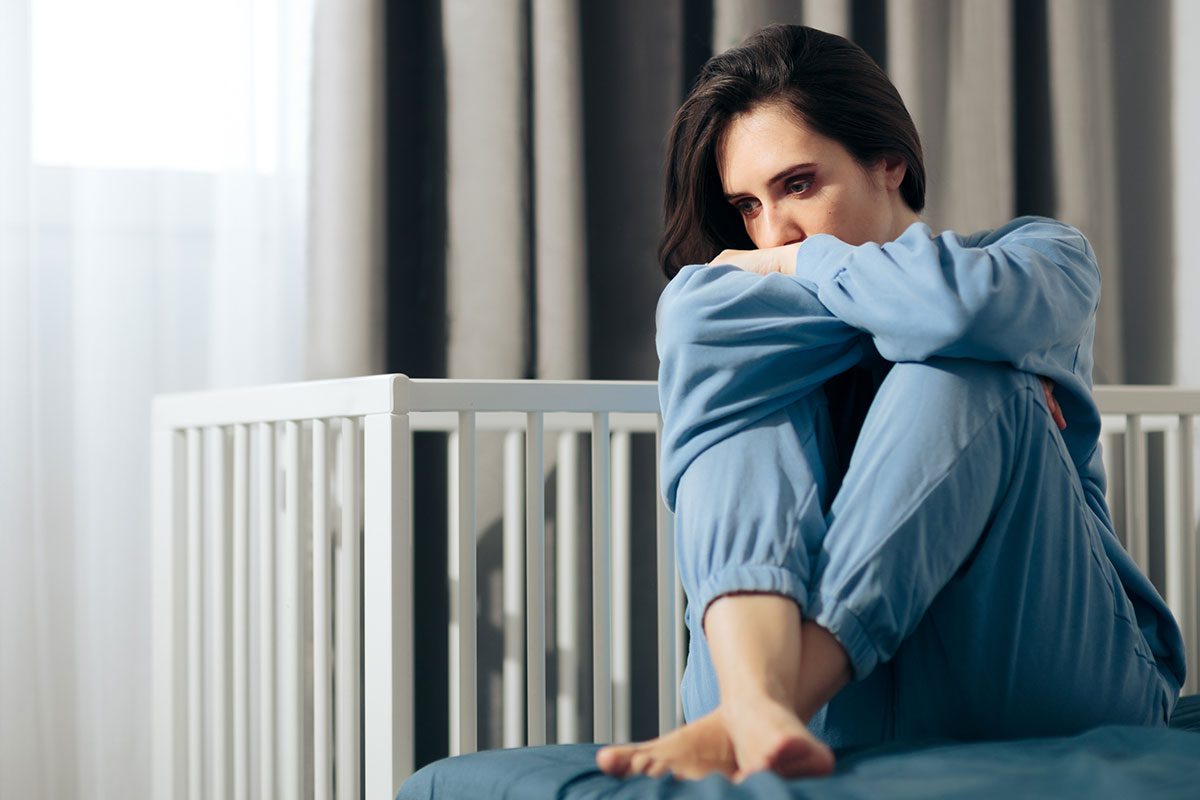Having a healthy pregnancy is top of mind for most women who become pregnant, and the thought of having a miscarriage can be scary and overwhelming. As many as 50% of all pregnancies end in miscarriage—usually before a missed menstrual period. And, about 1 in 4 recognized pregnancies end in a miscarriage.
If you are pregnant, it’s important to understand what a miscarriage is, why it happens, and what can increase your risk.
What is a miscarriage?
Miscarriage is the loss of a pregnancy due to natural causes during the first twenty weeks of pregnancy. Many miscarriages happen when the fetus has trouble developing normally. You may hear your doctor refer to miscarriage as “spontaneous abortion,” as this is the proper medical term.
Is miscarriage common?
About 10 to 25 percent of known pregnancies end in miscarriage. The exact statistics can vary depending what source you reference. It’s important to understand that most miscarriages take place early in a pregnancy. Nearly 80% occur in the first 12 weeks of pregnancy, and many times, the miscarriage can occur before a woman even realizes she is pregnant.
What are some of the signs of a miscarriage?
Common signs include abdominal pain or cramping, vaginal spotting or bleeding, back pain, weight loss, feeling light-headed, and tissue or fluid passing from the vagina. Keep in mind that vaginal spotting is common in the first trimester—if you happen to notice spotting in the early months of your pregnancy, this doesn’t mean you are experiencing a miscarriage. That said, it’s still important to get in touch with your doctor if you experience any of these symptoms.
This is especially true if you notice that tissue is being passed from your vagina. If this happens, Mayo Clinic recommends storing it in a clean container and bringing it to the hospital or your doctor so they can take a closer look.
Why does a miscarriage happen?
A miscarriage can happen for many different reasons. Some of the most common causes include an abnormally shaped womb, polycystic ovary syndrome (PCOS), a weak cervix that opens too early in the pregnancy, problems with placenta development, and when the fertilized egg doesn’t have the correct number of chromosomes.
Factors that increase the risk of miscarriage
Here are some of the most common:
- Age: After age 35, women are at a higher risk of miscarriage. At age 40 the risk is somewhere around 40%, and by age 45 the risk rises steeply to 80%.
- Chronic conditions: If you have uncontrolled diabetes, kidney disease, or another chronic condition, you may be at a higher risk of miscarriage. It’s important to speak with your doctor about pregnancy-related risks if you suffer from any chronic conditions.
- Cervical problems: If you suffer from an incompetent cervix (also known as a weakened cervix) or another uterine or cervical problem, you might be at higher risk of miscarriage.
- Drug and alcohol use and smoking: All of these behaviors can increase your risk of miscarriage.
- A history of miscarriage: If you’ve had more than one consecutive miscarriage in the past, you’re at higher risk of miscarriage.
- Weight: If you’re underweight or overweight, you may be at a higher risk for miscarriage.
The impact of a miscarriage isn’t just physical
Many women experience grief and sadness following a miscarriage, and this is completely normal. Following a miscarriage, many women have reported feeling shame, guilt, loneliness, as if they had done something wrong, or as if they had lost a child. If you think it would be helpful to speak with someone about what you’re experiencing but you don’t already have a mental health expert you can see, ask your doctor if they can refer you to someone they trust.
If you would like to meet with a knowledgeable doctor, consider contacting Women’s Health Arizona. As Arizona’s largest ObGyn group, we’re trained and solely dedicated to delivering the best ObGyn experience in convenient and comfortable settings around Phoenix.
Click here to read Nicole’s Story: A Complicated Miscarriage.

